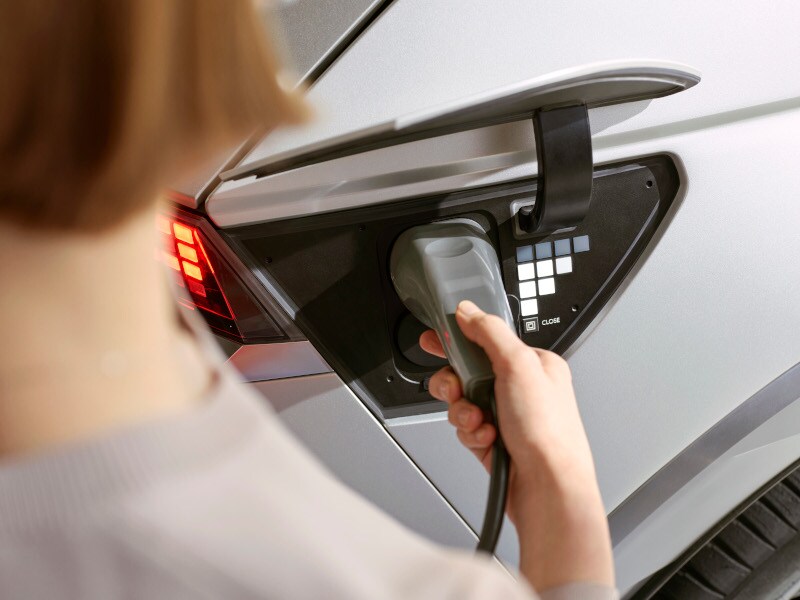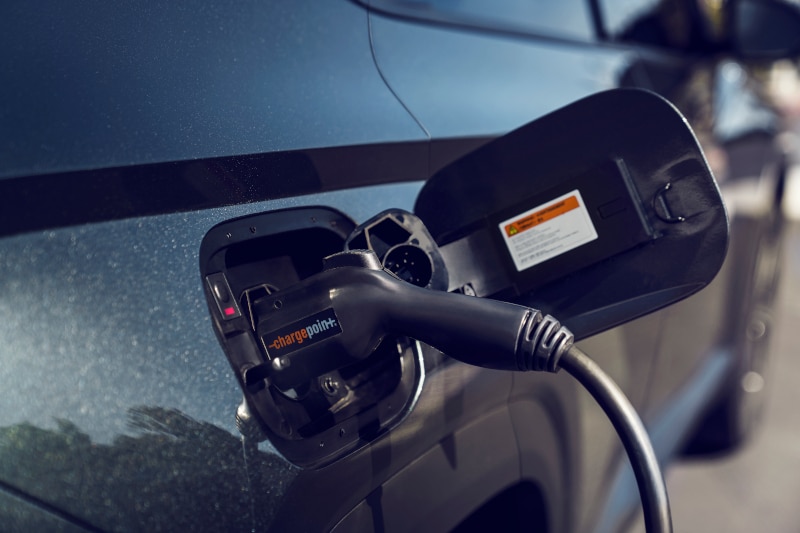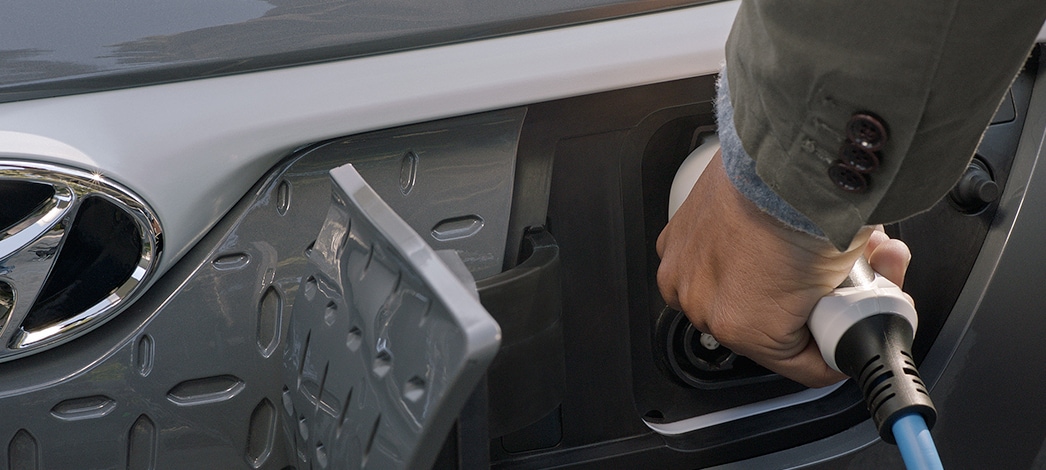Hybrid Vehicles
If you’re interested in a vehicle that doesn’t require constant charging but provides the efficiency benefits of a plug-in hybrid, then there’s a Hyundai hybrid to consider. The Hyundai Hybrid lineup consist of the Tucson Hybrid, and Santa Fe Hybrid. The Tucson fits in as a deceptively spacious and well-equipped urban cruiser with seating for five and a robust set of comfort and driver assistance features. The Santa Fe Hybrid brings more versatility to Endicott, NY roads thanks to increased adventuring capability. The Tucson Hybrid can be had in a variety of trims, which includes Blue, SEL Convenience, and Limited. The Blue trim comes standard with a 1.6-liter turbocharged hybrid engine while also offering all-wheel drive and a suite of driver assistance features. The Santa Fe Hybrid offers drivers three trims, as well. The Santa Fe Hybrid can be had in the Blue, SEL Premium, and Limited trims. The Santa Fe Hybrid boasts a 1.6-liter turbocharged hybrid engine, a 12.3-inch digital gauge cluster, all-wheel drive, and a hands-free smart liftgate.
Electric Vehicles
As it stands, the Hyundai lineup offers two pure-electric vehicles. There’s the IONIQ 5 along with the Kona Electric. The IONIQ 5 slots in as a dashingly stylish model that features 303 miles of maximum driving range, serious tech, and a standard suite of driver assistance features. Electric vehicles make for excellent vehicles for most any driving needs, with the IONIQ 5 excelling as a family vehicle, solo commuter, and casual adventure vehicle. The Hyundai IONIQ 5 is available to Johnson City, NY drivers in four trim levels: SE Standard Range, SE, SEL, and Limited. The IONIQ 5 SE Standard Range offers up 220 miles of driving range on a full charge, 168 horsepower, ultra-fast charging, a 12.3-inch HD touchscreen display, and a 12.3-inch digital instrument cluster. The Kona Electric fits in as a compact electric SUV that boasts 201 horsepower, 258 miles of driving range, and two trim options (SEL, Limited).
Plug-In Hybrid Vehicles
The Hyundai Plug-In hybrid lineup features the same two models as the hybrid lineup, just in plug-in hybrid variants. The Tucson Plug-In Hybrid and Santa Fe Plug-In Hybrid both fall in as model options. The Tucson Plug-In Hybrid manages 33 miles of driving range on a full charge along with all-wheel drive and a modern set of tech, comfort and convenience features. The Santa Fe Plug-In Hybrid offers up 30 miles of all-electric driving range for Windsor, NY drivers to enjoy along with all-wheel drive, smartphone connectivity, 261 horsepower, and a hands-free smart liftgate.





